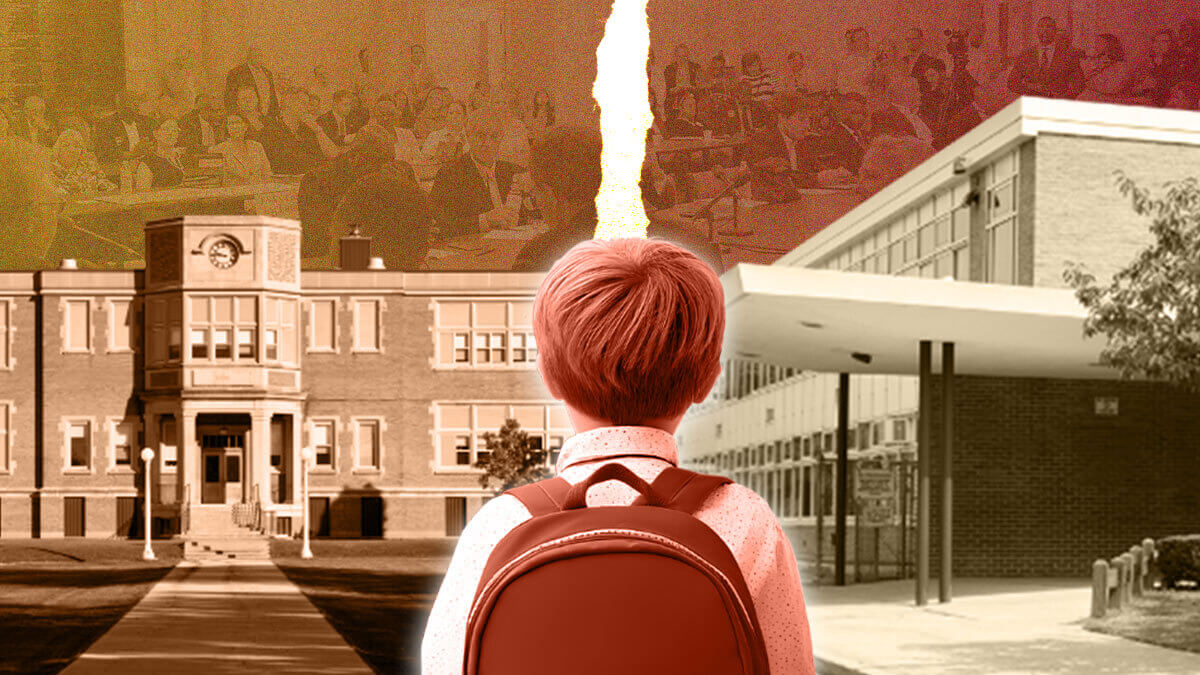

As conservative lawmakers promise to expand school choice next year, a handful of Mississippi cities are taking a public stand against the policy.
The resolutions could signal a lack of support for school choice among everyday Mississippians, something opponents have previously noted.
Municipal boards in Clinton, Pearl, Florence and Jackson all adopted anti-school choice resolutions in September, citing constituents’ disapproval.
School choice refers to a number of policies that give more educational options to families outside of traditional public schools, often allowing them to use public dollars to fund this education. Despite the recent success of the state’s public education system, powerful state lawmakers such as House Speaker Jason White say the issue will headline the upcoming legislative session.
Gov. Tate Reeves has been a vocal supporter of increased school choice, which proponents say parents across the state have been demanding.
But Nancy Loome, executive director of the public school advocacy organization The Parents’ Campaign, said the local ordinances are a testament to the opposite, and the role public schools play in Mississippi communities such as Clinton, where Loome lives.
The Clinton Board of Aldermen adopted a resolution on Sept. 2 opposing school choice initiatives that “redirect critical public funds away from local public school districts and instead subsidize private, unaccountable education providers.”
“The board members believe, rightly, that it is one of the biggest threats to their communities — not just their public schools, but their whole communities,” Loome said. “They’re not going to sit by in silence while the folks we elect on the state level push through something that would be very detrimental to their cities.”
The Clinton resolution also notes that in other states, voucher programs often have not improved academic outcomes and that, in many cases, families with students who already attend private schools are the main beneficiaries.
In Mississippi, school-choice advocates say the policies will improve access to quality education — in most cases, this means private schools or homeschooling — for low-income students. House leaders have insisted they will create a program that caters to the neediest students in Mississippi, and that it will be regulated, so it won’t bankrupt the state’s public schools.
But Chip Wilbanks, a Clinton alderman, doesn’t think expanding school choice will have that outcome.
He and his wife, like many of their neighbors, moved to Clinton to raise their family because of the strong public-school system, Wilbanks said. The district is consistently one of the highest rated in the state.

Wilbanks said he hasn’t yet encountered a Clinton resident who supports expanding school choice.
“The public school district is the epicenter of our town, and the success of our city is tied to it,” he said. “I know there’s no current bill on the table, but we wanted to get out in front of it and say we’re not for this as a concept.”
Wilbanks said his main concern with school-choice policies is the diversion of funding from public schools. He hopes the city’s resolution will encourage more voters to inform themselves about the issue and investigate beyond party lines.
“Clinton votes very Republican, and this is a Republican-pushed issue,” he said. “I just want people to look at the issue for themselves and see how they think it would affect small towns like Clinton that are dependent on public schools.”
Florence, another conservative Jackson suburb, adopted an anti-school choice resolution for similar reasons, said Mayor Pro Tempore Brian Grantham.
While he was campaigning for his seat on the Florence Board of Aldermen over the past few months, school choice kept coming up, Grantham said.
“A lot of people I talked to were concerned about the impact on our schools in Rankin County and in Florence,” he said. “Most people really like the school system, and they really don’t want to see any major changes. When you have something good going, you want to keep it that way.”
The story is more complicated in the state’s capital city.
Jackson Public Schools, the only urban district in the state, most recently received a “C” rating from the state Department of Education and has struggled more than its neighboring districts.
Still, Jackson Councilman Kevin Parkinson, a former charter school administrator, helped lead the effort to adopt the Jackson City Council’s resolution, which he says is “anti-privatization,” rather than “anti-school choice.”

Charter schools fall under the “school-choice” umbrella, but Parkinson said there’s a difference between supporting charters and supporting vouchers that use public dollars for private education, which Mississippi lawmakers are considering.
Vouchers, he said, are not supported by his constituents in Jackson. Still, Parkinson is nervous it will happen anyway because of aggressive efforts from state lawmakers.
“We’re not perfect, but for the first time, other states are modeling their education on what Mississippi is doing,” he said. “This would be a generational step backwards.”
The Board of Aldermen in Pearl adopted an anti-school choice resolution on Sept. 16. Board members did not respond to repeated requests for comment.
This coverage is supported by a grant from Press Forward Mississippi, part of a nationwide philanthropic effort to reinvigorate local news.
- State fire marshal is investigating troubled Unit 29 at Parchman prison - February 26, 2026
- Mississippi’s Winter Storm Fern losses exceed $107 million, state insurance department says - February 26, 2026
- DNA evidence linked to a Greenville homicide is missing. Now the finger-pointing begins - February 26, 2026